Mit gelben Birnen hänget
Und voll mit wilden Rosen
Das Land in den See,
Ihr holden Schwäne,
Und trunken von Küssen
Tunkt ihr das Haupt
Ins heilignüchterne Wasser.
Weh mir, wo nehm’ ich, wenn
Es Winter ist, die Blumen, und wo
Den Sonnenschein,
Und Schatten der Erde?
Die Mauern stehn
Sprachlos und kalt, im Winde
Klirren die Fahnen.
Und voll mit wilden Rosen
Das Land in den See,
Ihr holden Schwäne,
Und trunken von Küssen
Tunkt ihr das Haupt
Ins heilignüchterne Wasser.
Weh mir, wo nehm’ ich, wenn
Es Winter ist, die Blumen, und wo
Den Sonnenschein,
Und Schatten der Erde?
Die Mauern stehn
Sprachlos und kalt, im Winde
Klirren die Fahnen.
inviata da Bernart Bartleby - 26/7/2016 - 09:08
Lingua: Italiano
Traduzione italiana di Luigi Reitani, da “Friedrich Hölderlin, Tutte le liriche”, Mondadori, 2001.
METÀ DELLA VITA
Con gialle pere scende
E folta di rose selvatiche
La terra nel lago,
Amati cigni,
E voi ubriachi di baci
Tuffate il capo
Nell’acqua sobria e sacra.
Ahimè, dove trovare, quando
E' inverno, i fiori, e dove
Il raggio del sole,
E l’ombra della terra?
I muri stanno
Afoni e freddi, nel vento
Stridono le bandiere.
Con gialle pere scende
E folta di rose selvatiche
La terra nel lago,
Amati cigni,
E voi ubriachi di baci
Tuffate il capo
Nell’acqua sobria e sacra.
Ahimè, dove trovare, quando
E' inverno, i fiori, e dove
Il raggio del sole,
E l’ombra della terra?
I muri stanno
Afoni e freddi, nel vento
Stridono le bandiere.
inviata da Bernart Bartleby - 26/7/2016 - 09:12
Lingua: Ceco
Non ci crederete ma l'intuizione del valore che “Hälfte des Lebens” di Hölderlin ebbe per Gideon Klein è stata del tutto personale.
Ed oggi ne trovo conferma in una tesi di dottorato in musica sostenuta nel 2012 da tal Galit Gertsenzon Fromm presso l'Università di Cincinnati, USA, intitolata significativamente “Musical Expressions in Times of Uncertainty: A Study Of Gideon Klein’s Songs Opus 1 (1940)”.
In “Drei Lieder op.1 Hohe Stimme und Klavier” Gideon Klein nel 1940 metteva in musica tre poesie di tre autori tedeschi: “Springbrunnen” del seicentesco Johann Klaj, “Dämmrung senkte sich von oben” del settecentesco Johann Wolfgang Von Goethe e, appunto, “Hälfte des Lebens” dell'ottocentesco Friedrich Hölderlin.
L'incertezza e la paura di Hölderlin che si affacciava sull'orlo dell'abisso della sua terribile malattia era evidentemente analoga all'incertezza e alla paura che il raffinato compositore ebreo ceco Gideon Klein stava vivendo, e con lui tutti gli ebrei di Cecoslovacchia e d'Europa, di fronte alla minaccia nazista. Basta leggersi cosa accadeva a Praga in quel periodo, così come sintetizzato su questa pagina di Holocaust Research Project:
A questo punto non mi resta che proseguire nell'approfondimento della figura e dell'opera di Gideon Klein e qui dedico subito alla sua memoria la versione in ceco di “Hälfte des Lebens”, nella traduzione di Emily Ezust, ideatrice e curatrice di un sito fondamentale cui molte volte siamo ricorsi anche su queste pagine, The LiederNet Archive:
Ed oggi ne trovo conferma in una tesi di dottorato in musica sostenuta nel 2012 da tal Galit Gertsenzon Fromm presso l'Università di Cincinnati, USA, intitolata significativamente “Musical Expressions in Times of Uncertainty: A Study Of Gideon Klein’s Songs Opus 1 (1940)”.
In “Drei Lieder op.1 Hohe Stimme und Klavier” Gideon Klein nel 1940 metteva in musica tre poesie di tre autori tedeschi: “Springbrunnen” del seicentesco Johann Klaj, “Dämmrung senkte sich von oben” del settecentesco Johann Wolfgang Von Goethe e, appunto, “Hälfte des Lebens” dell'ottocentesco Friedrich Hölderlin.
L'incertezza e la paura di Hölderlin che si affacciava sull'orlo dell'abisso della sua terribile malattia era evidentemente analoga all'incertezza e alla paura che il raffinato compositore ebreo ceco Gideon Klein stava vivendo, e con lui tutti gli ebrei di Cecoslovacchia e d'Europa, di fronte alla minaccia nazista. Basta leggersi cosa accadeva a Praga in quel periodo, così come sintetizzato su questa pagina di Holocaust Research Project:
“[...] In March 1939 Konstantin von Neurath was appointed Reichsprotektor of the Reichsprotektorat Böhmen und Mähren. He instituted German laws controlling the press and abolished political parties and trade unions, ordered a harsh crack-down on protesting students in October and November 1939, but he was regarded as insufficiently rigorous in controlling Czech resistance. In September 1941 relieved from day-to-day powers and later replaced by Reinhard Heydrich.
On 21 June 1939 Neurath issued a decree excluding Jews from economic life of the Protectorate and forcing them to register their assets. Jewish companies were to be taken over by German Treuhander who would supervise their sale or “aryanisation”.
The day after the publication of Neurath’s decree, the SS Jewish expert, Adolf Eichmann arrived in Prague, establishing himself in a confiscated Jewish villa in Stresovice.
Eichmann headed “The Central Office for Jewish Emigration” (Zentralstelle fur Judische Auswanderung), an SS bureaucracy for robbing and expelling Jews which had first been established in Vienna.
Eichmann’s permanent representative in Prague was SS-Hauptsturmfuhrer Hans Gunther. Although a decree by the Reichsprotektor of 21 July 1939 subordinated Gunther to the Security Police Commander of the Protectorate SS- Brigadefuhrer Walter Stahlecker, he was solely answerable to Eichmann.
A central Jewish authority was promoted to facilitate the operations of the Central Emigration Office. In March 1940 the Jewish Communities of the Protectorate were subordinated to the Jewish Religious Council of Prague, headed by Dr Emil Kafka and his deputy Jakub Edelstein, which had been created in the wake of the Nazi occupation
This organisation was now expected to register the Jewish population of Bohemia / Moravia and raise funds for emigration. At a meeting with Dr Kafka in the summer of 1939 Eichmann demanded the expulsion of 70,000 Jews within a year. When Kafka protested there was no money for such a massive undertaking, Eichmann threatened to clear Prague street by street, sending 300 a day to the concentration camp at Dachau where “they would be very keen on emigration.”
In August 1939 Jews were segregated in Prague restaurants and prohibited from using public baths and swimming pools. The outbreak of the Second World War brought an avalanche of new decrees aimed against Jews. A dawn to dusk curfew was imposed on all Jewish households and their radios were confiscated.
At the beginning of 1940 Jews were forbidden to withdraw more than 1,500 crowns a week from their bank accounts, which were not allowed to earn interest. Gold, silver platinum and jewellery were to be sold at a discount to Hadega, a special company dealing in Jewish property established at 32 Hibernergasse.
Jews were excluded from the movie and theatre industries, they were restricted to the back of the second car on Prague trams and excluded from all hotels except the Fiser and the Star.
In April 1940 the Protectorate government issued a comprehensive law banning Jews from public service and all social, cultural and economic organisations, Jewish doctors could still practice but only in Jewish community.
Jews were ordered to report to the local police and have their identity papers stamped with a distinctive J. In August 1940 Jewish children were excluded from Czech schools and in October 1940 Jews were denied access to a wide range of rationed goods and banned from certain areas of Prague, including the Vltava embankment. [...]
On 21 June 1939 Neurath issued a decree excluding Jews from economic life of the Protectorate and forcing them to register their assets. Jewish companies were to be taken over by German Treuhander who would supervise their sale or “aryanisation”.
The day after the publication of Neurath’s decree, the SS Jewish expert, Adolf Eichmann arrived in Prague, establishing himself in a confiscated Jewish villa in Stresovice.
Eichmann headed “The Central Office for Jewish Emigration” (Zentralstelle fur Judische Auswanderung), an SS bureaucracy for robbing and expelling Jews which had first been established in Vienna.
Eichmann’s permanent representative in Prague was SS-Hauptsturmfuhrer Hans Gunther. Although a decree by the Reichsprotektor of 21 July 1939 subordinated Gunther to the Security Police Commander of the Protectorate SS- Brigadefuhrer Walter Stahlecker, he was solely answerable to Eichmann.
A central Jewish authority was promoted to facilitate the operations of the Central Emigration Office. In March 1940 the Jewish Communities of the Protectorate were subordinated to the Jewish Religious Council of Prague, headed by Dr Emil Kafka and his deputy Jakub Edelstein, which had been created in the wake of the Nazi occupation
This organisation was now expected to register the Jewish population of Bohemia / Moravia and raise funds for emigration. At a meeting with Dr Kafka in the summer of 1939 Eichmann demanded the expulsion of 70,000 Jews within a year. When Kafka protested there was no money for such a massive undertaking, Eichmann threatened to clear Prague street by street, sending 300 a day to the concentration camp at Dachau where “they would be very keen on emigration.”
In August 1939 Jews were segregated in Prague restaurants and prohibited from using public baths and swimming pools. The outbreak of the Second World War brought an avalanche of new decrees aimed against Jews. A dawn to dusk curfew was imposed on all Jewish households and their radios were confiscated.
At the beginning of 1940 Jews were forbidden to withdraw more than 1,500 crowns a week from their bank accounts, which were not allowed to earn interest. Gold, silver platinum and jewellery were to be sold at a discount to Hadega, a special company dealing in Jewish property established at 32 Hibernergasse.
Jews were excluded from the movie and theatre industries, they were restricted to the back of the second car on Prague trams and excluded from all hotels except the Fiser and the Star.
In April 1940 the Protectorate government issued a comprehensive law banning Jews from public service and all social, cultural and economic organisations, Jewish doctors could still practice but only in Jewish community.
Jews were ordered to report to the local police and have their identity papers stamped with a distinctive J. In August 1940 Jewish children were excluded from Czech schools and in October 1940 Jews were denied access to a wide range of rationed goods and banned from certain areas of Prague, including the Vltava embankment. [...]
A questo punto non mi resta che proseguire nell'approfondimento della figura e dell'opera di Gideon Klein e qui dedico subito alla sua memoria la versione in ceco di “Hälfte des Lebens”, nella traduzione di Emily Ezust, ideatrice e curatrice di un sito fondamentale cui molte volte siamo ricorsi anche su queste pagine, The LiederNet Archive:
POLOVINA ŽIVOTA
Pln zlatoplavých hrušek a
planých
růží sklání se k jezeru břeh
Vy labutě, sličné a potibky
zpity nořite tvář do svaté
střízlivé vody.
Žel mně, kde vezmu, až tu
bude zima,
kvítí a kde svit slunečni a
stínu kde vezmu?
Jsou němé zdi, mrazivě mlči,
ve větru prapork y řinčí.
Pln zlatoplavých hrušek a
planých
růží sklání se k jezeru břeh
Vy labutě, sličné a potibky
zpity nořite tvář do svaté
střízlivé vody.
Žel mně, kde vezmu, až tu
bude zima,
kvítí a kde svit slunečni a
stínu kde vezmu?
Jsou němé zdi, mrazivě mlči,
ve větru prapork y řinčí.
inviata da Bernart Bartleby - 26/7/2016 - 22:38
Lingua: Finlandese
Traduzione / Translation / Traduction / Suomennos: Juha Rämö
PUOLET ELÄMÄSTÄ
Keltaisin päärynöin
ja täynnä villejä ruusuja
maa taipuu järven ylle.
Te sulojoutsenet,
suudelmien humalluttamat,
painakaa päänne
pyhän veden tyyneen kalvoon.
Minä poloinen, mistä saan
talven tullen kukat ja mistä
auringonpaisteen
ja maan varjon?
Muurit seisovat
mykkinä ja kylminä, tuulessa
liput helisevät.
Keltaisin päärynöin
ja täynnä villejä ruusuja
maa taipuu järven ylle.
Te sulojoutsenet,
suudelmien humalluttamat,
painakaa päänne
pyhän veden tyyneen kalvoon.
Minä poloinen, mistä saan
talven tullen kukat ja mistä
auringonpaisteen
ja maan varjon?
Muurit seisovat
mykkinä ja kylminä, tuulessa
liput helisevät.
inviata da Juha Rämö - 29/7/2016 - 08:40
Lingua: Inglese
English translation from PoemHunter.com
AT THE MIDDLE OF LIFE
The earth hangs down
to the lake, full of yellow
pears and wild roses.
Lovely swans, drunk with
kisses you dip your heads
into the holy, sobering waters.
But when winter comes,
where will I find
the flowers, the sunshine,
the shadows of the earth?
The walls stand
speechless and cold,
the weathervanes
rattle in the wind.
The earth hangs down
to the lake, full of yellow
pears and wild roses.
Lovely swans, drunk with
kisses you dip your heads
into the holy, sobering waters.
But when winter comes,
where will I find
the flowers, the sunshine,
the shadows of the earth?
The walls stand
speechless and cold,
the weathervanes
rattle in the wind.
inviata da Juha Rämö - 29/7/2016 - 08:42
Lingua: Gaelico irlandese
Irish transcreation by Gabriel Rosenstock
LEATH AN TSAOIL
Le piorraí buí ar crochadh,
Is rós’nna ag cur thar maoil,
An tír sa loch glé,
A ealaí gleoite
Ar meisce le póga
Tumann sibh síos
Sna huiscí beannaithe maorga.
Faraor, cá bhfaigheadsa
Na bláthanna, i lár an gheimhridh
Is teas na gréin’
Is scáthanna an domhain?
Ná múrtha, Ó,
Balbh is fuar, is gliogar
Na gcoileach gaoithe.
Le piorraí buí ar crochadh,
Is rós’nna ag cur thar maoil,
An tír sa loch glé,
A ealaí gleoite
Ar meisce le póga
Tumann sibh síos
Sna huiscí beannaithe maorga.
Faraor, cá bhfaigheadsa
Na bláthanna, i lár an gheimhridh
Is teas na gréin’
Is scáthanna an domhain?
Ná múrtha, Ó,
Balbh is fuar, is gliogar
Na gcoileach gaoithe.
inviata da Gabriel Rosenstock - 29/7/2018 - 19:39
×
![]()









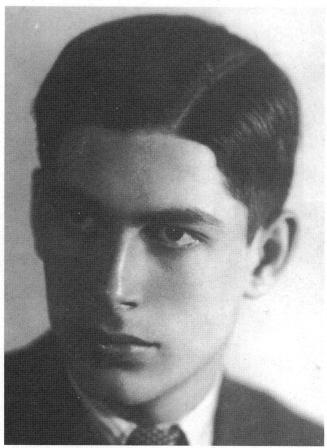
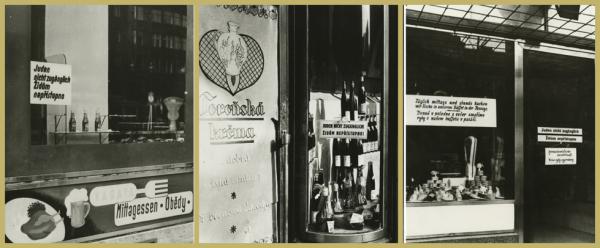
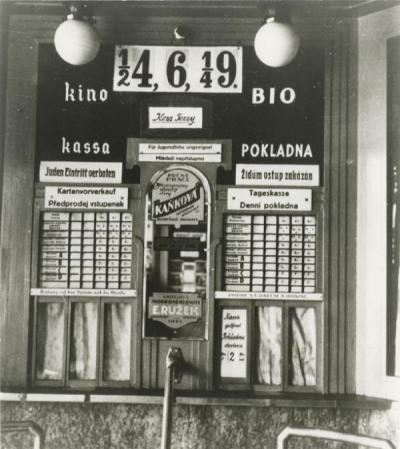
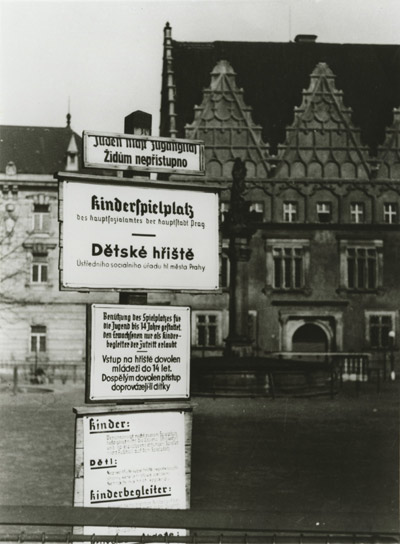
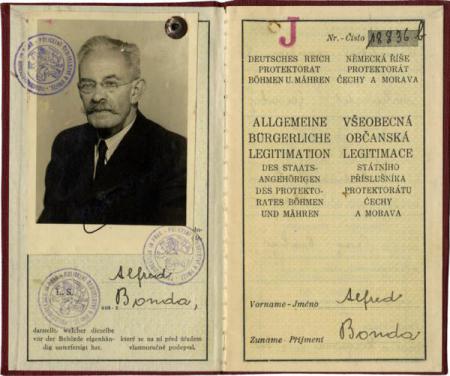
Versi di Friedrich Hölderlin (1770-1843), pubblicati per la prima volta nella raccolta “Taschenbuch für das Jahr 1805” dall’editore Friedrich Wilmans
Una poesia messa in musica da tantissimi compositori, da Britten a Ligeti a Wolpe, solo per citarne alcuni in un modo o nell’altro già presenti sulla CCG…
“Metà della vita”, una delle poesie più celebri di Hölderlin, che nel 1804 paradossalmente giungeva più o meno alla metà della sua vita e cominciava ad affacciarsi alla seconda parte, quella dominata dalla malattia mentale che però non lo piombò nell’oscurità mentale bensì in una diversa dimensione creativa, certamente più sofferente. E forse questo passaggio è qui già evidente nella differenza tra la prima strofa, solare, e la seconda, dove è l’inverno, l’ombra, il silenzio, il freddo, il vento.
Ho osato proporre questa poesia – e nemmeno come Extra – perché tra coloro che la misero in musica vi fu il pianista e compositore ebreo ceco Gideon Klein (1919-1945), già incontrato su queste pagine, per esempio in Die Peststadt e Ein Psalm aus Babylon, zu klagen.
Nel 1940 Gideon Klein si vide offrire una cattedra alla Royal Academy of Music di Londra. Avrebbe potuto essere per lui e i suoi cari la salvezza, e invece arrivarono prima i nazisti che lo internarono tra le fredde mura nel campo-fortezza di Terezín. Lì dentro, nonostante tutto, Gideon Klein, insieme a tanti altri, continuò a cercare il sole e la bellezza, contribuendo senza posa alla scrittura musicale e alla vita culturale e letteraria del campo.
Poi, nell’ottobre del 1944, gran parte degli internati ancora in vita vennero trasferiti nei principali campi di sterminio. Gideon Klein finì ad Auschwitz e poi nel sotto-campo di Fürstengrube, a cavar carbone dalle viscere delle terra (si veda al proposito la canzone Glück Auf!)…
L’inverno, il freddo, il buio delle gallerie spensero quella fiammella di luce che Klein era riuscito fino ad allora a tenere ancora accesa…
Il 7 gennaio del 1945, alle 4 del mattino, le SS fecero irruzione nel campo, sparando all’impazzata sui prigionieri e poi appiccando il fuoco alle baracche. Molti morirono bruciati vivi, intrappolati al loro interno. Gideon Klein morì con quasi tutti gli altri (si salvarono solo in 20) nella liquidazione del campo…